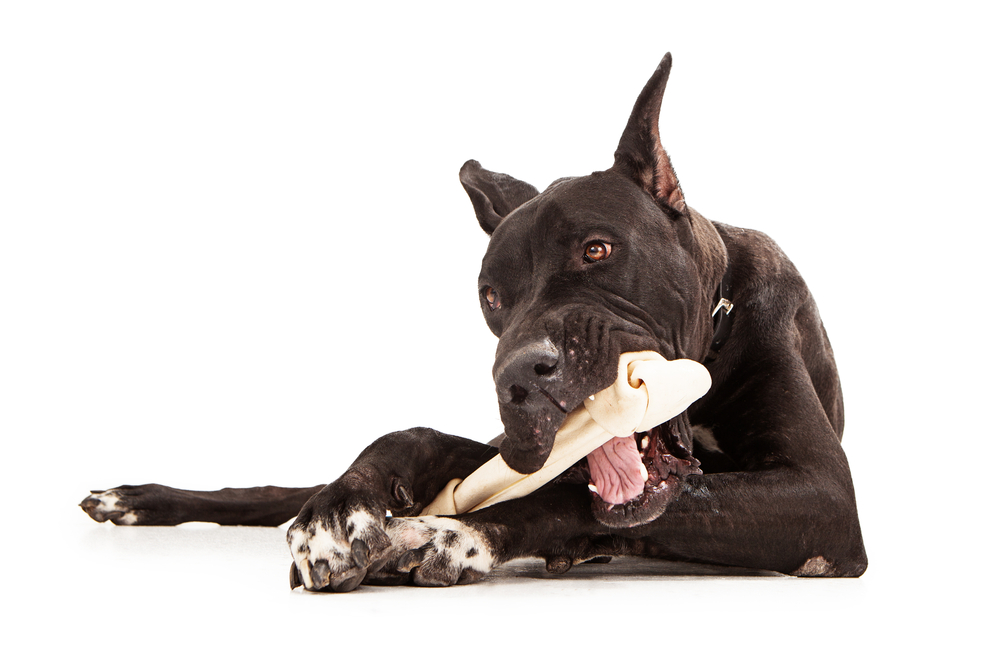5 Treats That Could Make Your Pets Sick 5 Treats That Could Make Your Pets Sick! By Susan Blake Davis, Pet Nutritionist
We love our pets and want to spoil them. But be careful, as some treats can cause more harm than good. Not every pet will have a problem with the treats listed below but some might and it is better to be safe than sorry!
Peanut Butter This is often a favorite method for administering pills to dogs. Peanut butter can be a huge allergen and should definitely be avoided if your dog has any type of allergy or skin problems such as ear infections, hot spots, or paw chewing/licking. Also, peanut butter is very high in fat and should not be used for any dogs with liver or pancreatitis conditions. Alternatives for administering supplement pills are canned dog food, mixing supplements into moist food (check with your veterinarian regarding prescription pills) or hypoallergenic Pill Pockets. If your dog is itching, scratching, scooting his butt or getting ear infections, use K9 Yeast Defense for fast relief and try an alternative to the peanut butter. Tuna Many pet owners add tuna to their cat's food on a routine basis. This is usually because the cat isn't eating well due to digestive issues. Food allergies can worsen IBD and the constant inflammation can lead to intestinal lymphoma. Instead of using tuna, look for healthy freeze dried toppers in hypoallergenic protein sources such as rabbit. If your kitty isn't eating well, try the IBD Kit and Gastro ULC which help relieve the acid stomach and tummy rumbling, helping to improve the cat's appetite. Commercial Hot Dogs Hot dogs are highly processed, loaded with salt, chemicals and are high in fat. In addition, most contain nitrates which are a known carcinogen. A contributing factor to the high rate of cancer in pets is the reduced quality of foods we are feeding them. If you want to eat a hot dog, then take a look at Applegate Farms which is a lower fat, no-nitrate, no-antibiotic version. But for your pets, stick with a piece of home cooked meat over a hot dog. Fat From Meat e.g. Tablescraps The fat from your meat should go into the garbage---not into your pet. Pancreatitis can occur from a simple incidence of cutting off fat from meat and giving it your pet. Pets thrive on lean meats, fish and poultry. If your pet is prone to pancreatitis, you can still give them a piece of lean meat but use Lypozyme a digestive enzyme specially designed for pets prone to pancreatitis. Cookie Dough and Other Baked Goods Pets can get sick very quickly from too much sugar. Most baked goods not only contain sugar but also flour which can be problematic for allergic pets. Some contain raisins which are poisonous. Many pets get urinary tract infections especially from eating grains and high carbohydrates. Please avoid giving your pet grains and especially human baked goods that contain sugar. Note: many dog biscuits and dog cookies include flour and sugary ingredients such as molasses. Many dogs develop scratching, itching and allergy symptoms as a result. Grains can be a big allergen and starchy carbohydrates and sugar promote yeast overgrowth.  Healthy Treats For Your Pet Vegetables such as baby carrots, green beans and other vegetables (steamed or raw if your pet doesn't have digestive issues) are a great treat. There are also a number of holistic protein-based treats such as freeze dried rabbit, venison or lamb. Look closely on the label to be sure flour, molasses, wheat gluten, etc haven't also been added in. You can also use your pet's canned food and bake at a low temperature into small treats. Fish is an excellent source of Omega 3s and will make your pets coat silky and lustrous. Our Amazing Omegas are a wonderful "tasty" treat for pets. Many dogs will lick it right from the spoon. Amazing Omegas provide exceptional nutrition and are especially important for pets with dry coat or "dandruff", hip or joint problems, allergies and heart disease. Easily mixes into foods. Please look at labels carefully---if you can't pronounce the ingredients--don't give it to your pet. Finally, be sure to avoid treats with food dyes that are made to look like fresh ingredients--e.g. orange-colored dog treats that are made to look like a fresh carrot. Click here to return to the library of pet health articles. |